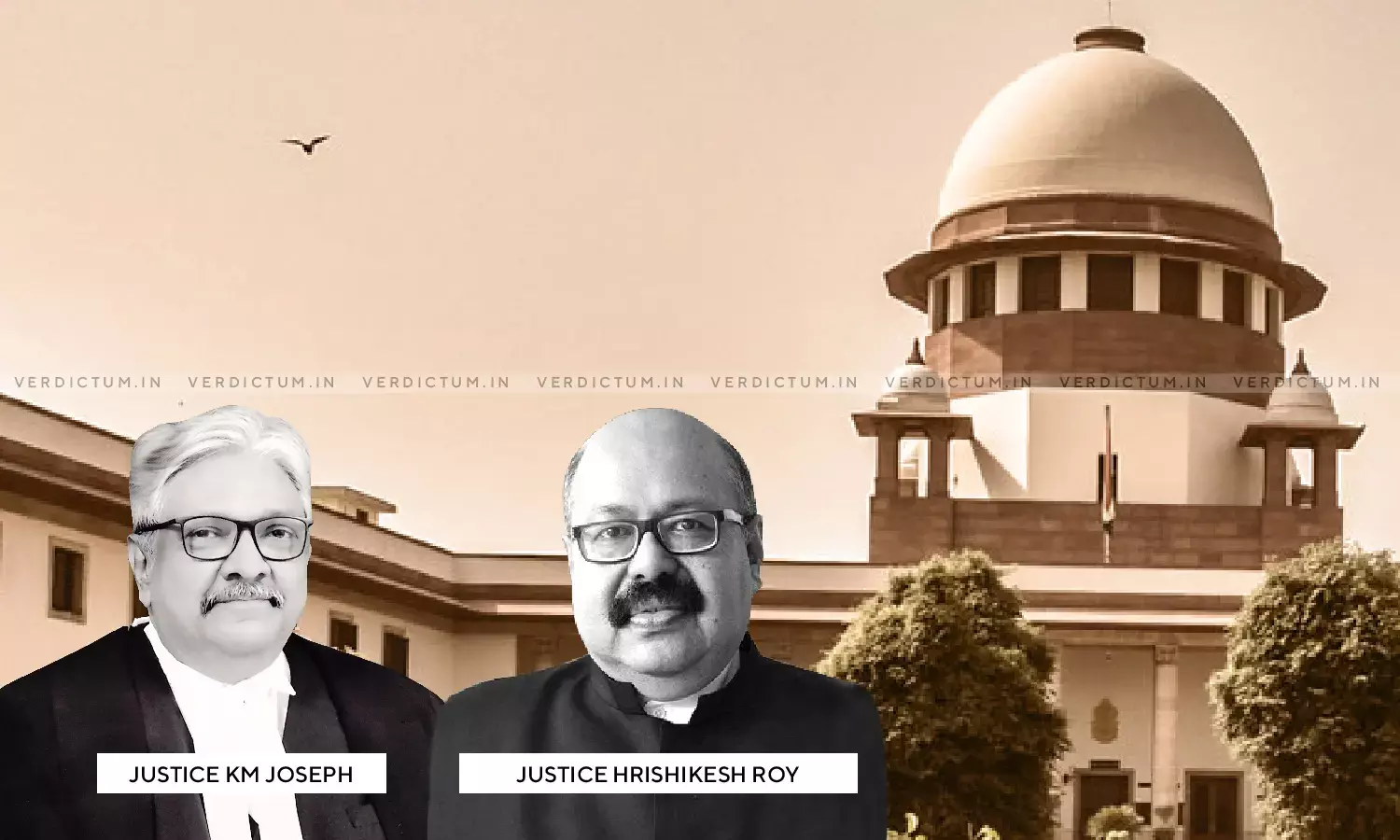Order 41 Rule 33 CPC - Extra Ordinary Power Conferred Upon Appellate Courts Is Rare Jurisdiction - Supreme Court

The Supreme Court bench of Justice K.M. Joseph and Justice Hrishikesh Roy set aside a judgment of the High Court regarding the Respondent's dismissal from service, by way of observing that the powers granted to appellate courts through Order 41 Rule 33 of CPC are to be exercised only in exceptional cases.
Order 41 Rule 33 of the CPC deals with the power of the Court of Appeal to pass an appropriate order in a case regardless of the fact that the appeal is only with respect to a part of the decree or that the appeal is filed only by some of the parties.
The Counsel for the Appellants was Mr. Parijat Kishore and the Counsel for the Respondent was Mr. Mahesh Prasad.
A complaint relating to the demand for bribe was launched against the Respondent who was employed as a clerk with the Appellants. Owing to this, the Respondent was arrested by the CBI and a case was lodged against him under Section 7 (12) & (13), sub-section 2 read with Section 13(i)(d) of the Prevention of Corruption Act, 1988.
The Respondent was served with a notice of departmental enquiry, after which the Respondent moved to file a Writ Petition, following which the Court granted the Appellants the right to proceed with departmental inquiries, but no final order could be passed without the leave of the Court.
The Appellants submitted that the enquiry was held with the Respondent's participation, after which the Single Judge passed a judgment allowing the Appellants to dismiss the Respondent's service. This decision was impugned by the Respondent before a Division Bench of the High Court.
Noting the exercise of the power of the Court of Appeal provided in Order 41 Rule 33 of CPC, the Division Bench of the High Court stayed the final order of dismissal of the Respondent until the criminal case against him was disposed of.
The Appellants contended before the Supreme Court that the High Court had erred in not noticing that it was principally not desirable to delay departmental disciplinary proceedings on account of the pendency of a criminal case. Further, he submitted that the order of dismissal of the Respondent was not challenged before the Division Bench. He also argued that the verdict of acquittal in the criminal trial which may occur in the future would not affect the disciplinary proceedings as the principles applicable to disciplinary proceedings are different.
In response, the Counsel for the Respondents pointed out that the impugned order does not call for any interference in the proceedings. He further submitted that the disciplinary proceedings were not conducted in a proper manner, as the charges, witnesses, and evidence in the departmental proceedings and the criminal case are the same.
After hearing the arguments by both Counsels, the Supreme Court opined that the Division Bench of the High Court had erred in gauging the suitability in the application of the principle.
The Bench held that the application of the principle applied by the High Court would only be suitable in situations where it would be undesirable for an employee to disclose his defence in a departmental hearing before the criminal trial. However, the Respondent had already participated in the disciplinary proceedings after the order of the Single Judge, and therefore, there was no scope present for the application of this principle by the High Court.
The Bench found that the High Court was not justified in passing an order by which the Appellant is forced to retain an employee until the criminal case against him is decided when he has already been found guilty by way of a disciplinary hearing.
Marking Order 41 Rule 33 of the CPC as a "rare jurisdiction", the Court opined that the High Court was not justified in using this power.
To that end, the Bench held that "Order 41 Rule 33 no doubt clothes the appellate court with an extra ordinary power, which however is a rare jurisdiction. It is to reach justice in the special facts of a case. It is not an ordinary rule to be applied across the board in all the appeals. In fact, the principle is inter alia no doubt that even if there is no appeal by any of the parties in the proceedings, an order can be passed in his favour in the appeal carried by the other side. Any order which ought to have been passed can be passed. In this case, there is no order against the appellant(s) by the learned Single Judge. The order of dismissal was not specifically the subject matter of challenge as noticed. We do not think in the facts of this case, that it is a fit case where the High Court could have supported the directions with reference to Order 41 Rule 33."
By way of these observations, the Supreme Court found that the impugned judgement of the High Court could not be sustained. Clarifying that the Respondent has the rights to challenge the disciplinary proceedings in any competent forum, the Bench set aside the impugned judgement.

